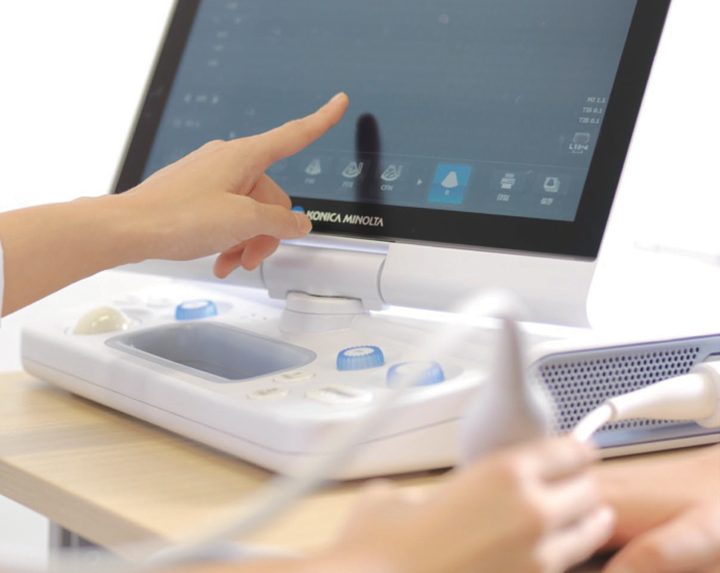In Melbourne, disability services are diverse, ranging from general support to highly specialised care. For individuals with complex needs, finding the right service provider can make all the difference in achieving independence, comfort, and a fulfilling lifestyle. Complex needs often mean requiring a high level of care, multiple therapies, and constant coordination between professionals.
The National Disability Insurance Scheme (NDIS) plays a pivotal role in supporting individuals with complex needs, but navigating the system and finding the right provider can be challenging. This article will guide you through the essentials of complex needs care, the services available in Melbourne, and how to choose the right provider for yourself or a loved one.
What Are Complex Needs in the Context of Disability Services?
Definition & Scope
Complex needs refer to situations where a person’s disability care involves multiple layers of support — physical, psychological, social, and sometimes medical. It goes beyond basic assistance with daily activities and often requires an integrated approach involving specialists.
Examples of Complex Needs
- A person living with both cerebral palsy and epilepsy.
- An individual with an intellectual disability coupled with severe behavioural challenges.
- A person requiring constant respiratory care alongside mobility assistance.
How Complexity Affects Service Choice
The more complex the needs, the more important it becomes to choose a provider with:
- Highly trained staff.
- Experience in multidisciplinary care.
- Access to specialised facilities and equipment.
Without these, the quality of care and safety may be compromised.
3. Key Features to Look for in Disability Services for Complex Needs
Highly Skilled and Specialized Support Staff
For complex needs, staff must be trained in advanced care techniques such as medication administration, behavioural intervention, and using assistive technology.
Multidisciplinary Approach
This ensures that the person’s needs are addressed from every angle — medical, therapeutic, social, and emotional. For example, occupational therapists, physiotherapists, psychologists, and nurses might work together.
Individualized Care Plans
A one-size-fits-all approach doesn’t work for complex needs. Each person should have a tailored NDIS plan outlining specific goals and support strategies.
24/7 Availability & Crisis Response
Complex needs can mean unpredictable situations. Having a provider that offers round-the-clock care and crisis management is crucial.
Cultural Competency & Inclusivity
Providers should respect the person’s cultural background, language, and personal values when delivering support.
4. Types of Disability Services in Melbourne for Complex Needs
Support Coordination & Plan Management
Support coordinators help navigate the NDIS, connect with the right services, and ensure all parts of the care plan are functioning effectively.
Therapeutic Services
These include speech therapy for communication, occupational therapy for daily living skills, physiotherapy for mobility, and psychological support for emotional well-being.
In-Home and Community Support
Assistance with personal care, transport, shopping, and participating in social activities — all customised for safety and comfort.
Specialist Disability Accommodation (SDA)
Housing built or modified for people with significant functional impairments, featuring wheelchair access, emergency call systems, and tailored layouts.
Short-Term Accommodation & Respite Care
Provides a safe and supportive temporary stay for individuals, allowing primary carers time to rest or attend to other responsibilities.
5. Top-Rated Disability Service Providers in Melbourne for Complex Needs
While Melbourne has many excellent disability providers, some have built a strong reputation for supporting complex needs:
- Scope Australia – Known for expertise in complex communication needs and customised therapy programs.
- Yooralla – Offers 24/7 support and a wide range of therapy options under one roof.
- Possability – Strong behavioural support services and community inclusion programs.
- Lifestyle Solutions – Specialises in independent living skills and accessible housing.
- Able Australia – Offers services for people with multiple disabilities, including vision and hearing loss.
6. How to Choose the Best Service Provider for Complex Needs
Assessing Provider Experience & Specialisation
Look for proven experience in handling your specific set of needs — for example, high-intensity daily personal activities or complex medical support.
Checking NDIS Registration & Compliance
NDIS-registered providers follow strict quality and safety standards, which is vital for peace of mind.
Reading Reviews & Case Studies
Testimonials and success stories can provide insight into real-world experiences with the provider.
Interviewing Potential Providers
Ask questions about staff qualifications, emergency procedures, and flexibility in care plans.
Trial Periods & Flexibility
Some providers offer trial services, allowing you to assess compatibility before committing.
7. Funding & Financial Considerations
Using the NDIS for Complex Needs Support
The NDIS offers funding under categories like Core Supports, Capacity Building, and Capital Supports — all of which can be tailored to complex needs.
State Government & Local Council Programs
In addition to the NDIS, Victoria’s state programs may offer supplementary funding or resources.
Private Funding & Insurance Options
When NDIS funding is insufficient, private health insurance or out-of-pocket arrangements can help cover gaps.
8. Challenges and Solutions in Providing Complex Needs Support
Staff Turnover & Consistency of Care
Solution: Choose providers with low turnover rates and invest in relationship-building between staff and participants.
Communication Barriers
Solution: Use augmentative and alternative communication (AAC) devices, picture boards, or interpreters.
Coordinating Multiple Services
Solution: Assign a dedicated case manager or use digital platforms for better coordination.
9. Future Trends in Disability Services for Complex Needs
- Assistive Technology Growth: From smart home devices to advanced mobility aids.
- Telehealth Expansion: Remote consultations with specialists.
- Person-Centred & Cultural Responsiveness: More tailored care that respects identity and background.
10. Conclusion
Finding the right disability services in Melbourne for complex needs is not just about ticking boxes — it’s about creating a support system that empowers individuals to live a fulfilling and independent life. By choosing a provider with specialised staff, a multidisciplinary approach, and a commitment to personalised care, you can significantly enhance quality of life.
Whether it’s through NDIS-funded therapy, Specialist Disability Accommodation, or 24/7 in-home support, Melbourne offers diverse and high-quality options for those with complex needs. The key is to assess your priorities, research providers thoroughly, and make informed choices.
FAQs
1. What qualifies as ‘complex needs’ under the NDIS?
Complex needs typically refer to situations where a person requires multiple forms of support across different areas — such as physical assistance, medical care, and behavioural support — all integrated into a single care plan.
2. How do I find a disability service provider in Melbourne that specialises in complex needs?
You can search the NDIS provider directory, ask for recommendations from support coordinators, or contact local disability advocacy groups.
3. Can I change providers if my current one isn’t meeting my needs?
Yes, you can switch providers at any time. It’s important to ensure the new provider understands your complex needs and can meet them effectively.
4. Are there free or low-cost services available for complex needs support?
Some community organisations and government programs offer subsidised or free services for eligible individuals.
5. What is the role of a support coordinator for people with complex needs?
Support coordinators help connect you with the right services, manage your NDIS plan, and ensure all parts of your care are working together.
6. How does Specialist Disability Accommodation help people with complex needs?
SDA provides purpose-built housing with features designed for accessibility, safety, and high levels of care.
7. Can I get 24/7 in-home care through the NDIS?
Yes, if your NDIS plan includes high-intensity daily personal activities or complex support needs, you may be eligible for 24/7 care.
8. What should I look for in staff qualifications when choosing a provider?
Look for qualifications in disability care, nursing, or allied health, as well as experience in handling complex cases.




